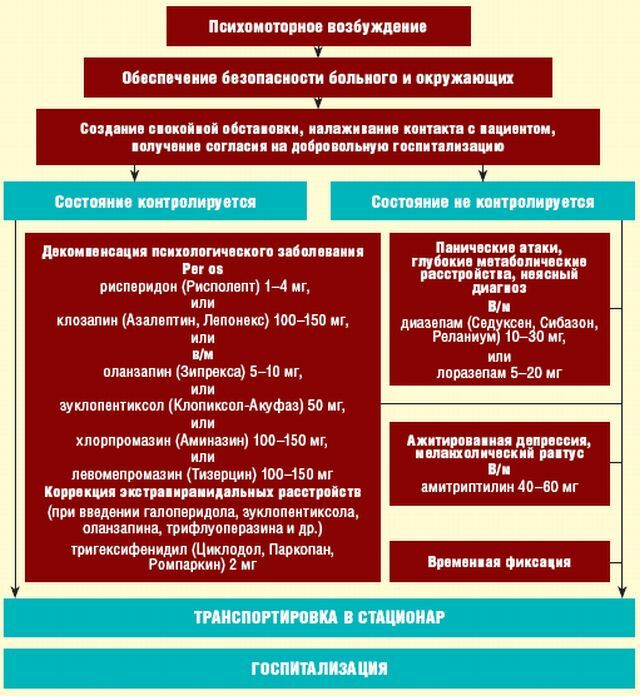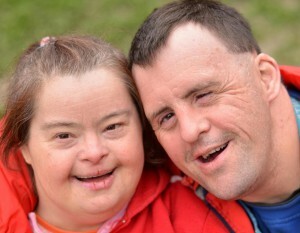 The intermediate degree of mental retardation( oligophrenia), which lies between morbidity and idiocy, is called imbecility. This is the average degree of mental underdevelopment.
The intermediate degree of mental retardation( oligophrenia), which lies between morbidity and idiocy, is called imbecility. This is the average degree of mental underdevelopment.
A child with this diagnosis is recognized as a disabled child, since he is not able to live independently. He needs custody and constant supervision.
Imbeciles are teachable, but the skills they master are the most primitive. They are able to communicate, respond to approval, or condemnation.
Mathematics is mastered at the level of a primitive account. They consider only concrete, tangible things: money, objects. The diploma is given hard: they can read small texts, most often in syllables. The ability to write is limited to a few words.
Social and domestic successes get to them with difficulty, but the patient can be taught to take care of themselves, to eat and dress themselves.
They are able to master elementary skills, but learning is through long repetitions and memorization of the same actions.
Contents
- Eternal children
- Constant monitoring
- Forms of the disease
- Provoking factors and causes
- Stages and degrees of development
- Imbecility in children
- Diagnosis and imbecility test
- Patient correction and adaptation
- Preventative measures
Eternal children
Higher brain functions that,in fact, form the unique personality of a person, are at an extremely low level. In their mental development, those who suffer from imbecile remain forever at the age of "pre-school".
Unlike people with a mild form of mental retardation, imbecile is easy to recognize even by external signs. Depending on the micro, or hydrocephalus, the patient has a disproportionate head size: too small, or too large.
Incorrect bite, ears with lobules attached to the head, deformed facial bones, frozen, unblinking gaze - all these are  external signs of imbecility.
external signs of imbecility.
That is - those that can be seen on the face. When walking, they are clumsy, poorly coordinated movements, often hump, slouch. Fine motor skills, due to focal neurological symptoms, are almost beyond their control. A great achievement for persons with imbecile - to tie the laces, thread the needle.
Such people are forced to live all their lives in the family of parents on the condition of 7-year-old children. Father and mother are an object of inexhaustible love for them. They do not start their own families. Communication is limited to the family circle, or rehabilitation groups.
Constant control
Imbecile speech is a set of a couple of hundred simple words that they use only when urgently needed. They are tongue-tied, incorrectly build sentences, use short sentences. Thinking is developed at the most primitive level, there is no strong-willed factor, emotions are exhausted by the manifestation of either joy or anger.
The change of habitual circumstances plunges them into fear and confusion. Bezinitsiativnye, instilled, passive, they can easily fall under bad influence. Therefore, they need constant supervision and supervision throughout their life.
The scope of imbecile does not go beyond satisfying natural needs and satisfying the simplest instincts.
They are constantly haunted by a feeling of hunger, they can eat huge portions without feeling a sense of satiety. It is important to consolidate the rules of the simplest norms of behavior.
Without the vigilant control of the family, teachers and psychiatrists, such patients may pose a danger to others. They are sexually disinhibited and can not suppress their sexual desires. This often threatens to result in antisocial behavior( masturbation), molestation of women and sexual crimes.
Forms of the disease
Oligophrenia in the degree of imbecility, depending on the causes that caused the pathology, are divided into four forms.
- Hereditary form of .It is caused by the defective genes of the parents.
- Intrauterine form of .The disease provokes bacterial, or viral infections, suffered by a woman during pregnancy.
- The form of mental retardation caused by : a) birth injuries, fetal brain hypoxia, asphyxia of the newborn;b) suffered in the early childhood by serious infections, or traumas of the skull.
- Delay in mental development due to congenital inferiority of the endocrine system , or brain.

The causative factors and causes of
There are several sets of causes leading to the development of mental development:
- Reasons for the internal nature of : chromosomal abnormalities, genetic failures, hereditary factors.
- Causes of external etiology : infectious diseases during pregnancy, abuse of a future mother by any type of narcotic drugs. Traumas of the child's skull during childbirth, or after them, as well as various Rhesus blood groups of the mother and child.
- Causes of mixed etiology : the effect on the child of both external and internal damaging agents. The double onslaught of pathological factors gives the most serious degree of imbecility.
Stages and stages of development of
Oligophrenia has three developmental severities, depending on the degree of mental retardation - debility, imbecility, idiocy.
In turn, imbecility has 2 degrees of severity: moderate and severe. Each of them is characterized by a certain form of mental underdevelopment:
- Moderate severity of .Patients in this group have an IQ of 34 to 48 points. The ability to think is limited: it is concrete, directly connected with a certain situation. The ability to analyze, associate with such patients is not available. Patients incorrectly build sentences, are tongue-tied, have a minimal stock of words necessary for communicating with those who take care of them. Emotionality is almost at zero, little motor skills are poorly developed. Pronounced neurology: paresis, sensitivity disorders. Organic damage to the cranial nerves often causes epilepsy. Sometimes signs of autism are added.
- The express degree of .The lower limit of IQ is only 20 points, the upper limit is not more than 34. Neurological symptoms are very colorful: parailes are joined by paralyzes, motor skills in an embryonic state. Intellectual abilities and personal qualities are expressed in the smallest degree. By the level of vocabulary similar to 6-year-old children. They need lifelong control, assistance in the simplest self-service.

Imbecility in children
Unlike moronity, the imbecility of your child can be suspected almost from diapers. This child is everywhere very late.
If to one-year age he does not distinguish parents from strangers, does not show any reaction to the speech addressed to him, is not interested in toys, should be alerted. Children start to sit up late, stand.
A child with a suspicion of imbecility does not take the toys extended to him, does not grab for the nearest support in case of a threat of falling. Walking mastered only by the 2-year.
At this age, the kids do not understand what they want from them, focusing more on the intonation of the interlocutor than on the meaning of the treatment. They do not have 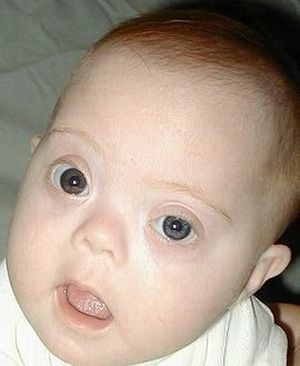 curiosity, interest in the world around them.
curiosity, interest in the world around them.
All their games are distinguished by some single standard and ridiculous stencil. The speech is given to them with difficulty, differs in the wrong construction, in tongue-tied language. By two or four years they are just beginning to learn how to speak.
In the correctional classes of such patients, you can only teach an account within 10, reading by syllables, short recounts of what was heard.
Children-imbeciles are characterized by an almost complete lack of emotions, "frozen" facial expressions and total indifference to the world around them. In infancy, they are often mistaken for deaf people because of a lack of response to the speech addressed to them.
Diagnosis and Implication Test
Such developmental anomalies as imbecility can be diagnosed during the woman's pregnancy. With screening, there is a chance to identify abnormalities in fetal development in the early stages.
IQ tests and the Wexler scale will help determine imbecility. The level of the coefficient of intelligence with imbecility varies from 60 to 20, depending on the severity of the disease.
Scores of less than 55, scored on a scale, also indicate a disease. Based on the test results, the psychoneurologist assesses mental abilities.

To diagnose, in addition to tests, a conversation with the patient is conducted, from which one can draw conclusions about how well developed speech is, what are his interests, how much he is adapted among people.
Exact diagnosis and diagnosis of the causes of the disease will help to conduct computer and resonance-magnetic tomography. Violations in the brain will reveal an electroencephalogram. Vessels for pathology are checked by angiography.
The possibilities of correction and adaptation of the patient
Imbecility, like any congenital form of dementia, is not cured. All that can be done for such patients is to treat not the illness, but the symptoms. Drug treatment is divided into specific and symptomatic.
Specific treatment is received in patients with a metabolic disorder and with enzyme defects:
- With hypothyroidism , a deficiency of thyroid hormones is treated with their synthesized substitute - Levothyroxine. The endocrinologist selects an individual scheme of taking the drug, determines the initial dose and its subsequent increase.
- Phenylketonuria is treated with a strict diet. Foods that are high in protein, that is, phenylaniline, are excluded. The body does not produce an enzyme that must convert phenylanin into tyrosine. Namely, tyrosine is responsible for the normal course of
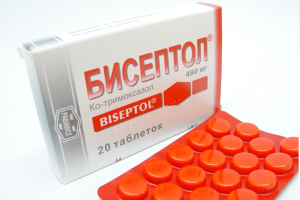 in many hormonal processes. In addition to diet, patients need to take Carnitine, which inhibits the excess production of thyroid hormones.
in many hormonal processes. In addition to diet, patients need to take Carnitine, which inhibits the excess production of thyroid hormones. - Toxoplasmosis is well treatable with antibiotics, Diraprim, Chloridine, arsenic preparations.
- Brain infections ( encephalitis, meningitis) are treated with antibiotics in combination with sulfonamides( Biseptol, Sulfaton, Bacterial).
Symptomatic treatment consists in prescribing drugs that stimulate brain activity. These include:
- Psychostimulants .Medications that increase the level of mental and physical activity( Caffeine, Sidnokarb, Ritalin, amphetamines).
- Biostimulators .Phytoset and herbs that accelerate metabolism( aloe extract, ginseng, mummy, propolis, plantain)
- Diuretics .Remedies that remove excess water from the body( Furosemide, Diacarb, Mannitol).They are indicated in hydrocephalus.
- Anticonvulsants ( Phenobarbital, Phenytoin, Carbamazepine) are prescribed with a tendency to epileptic seizures.
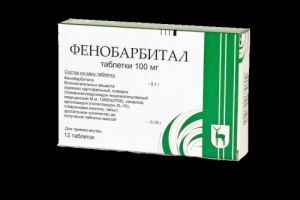
- The psychotropic drugs of the group of tranquilizers ( Fenazepam, Elzepam, Sibazon) and of antipsychotics ( Aminazine, Haloperidol, Teasercin) are used to reduce excitability and unmotivated outbreaks of aggression.
Patients with severe speech defects are treated with a speech therapist. All patients should be supervised by a psychiatrist. Remembering that imbeciles do not outstrip seven-year-olds in development level, the main treatment is reduced to upbringing, care and vigilant control.
If there is no monitoring of patients, they easily fall under the influence of antisocial elements and become complicit in crimes. Such people are dangerous and need to be placed in a psychiatric clinic where they receive antipsychotics.
Precautionary measures
Prevention of imbecility is divided into primary and secondary. The primary is that the possible pathologies are revealed even at the stage of formation and development of the fetus.
A pregnant woman undergoes ultrasound procedures and examines the blood for the presence of certain hormones. The received data testify to a favorable course of pregnancy if the hormonal background is in order. The absence of some hormones may indicate a developing fetal pathology.
Secondary prophylaxis is the rapid detection of pathologies in newborns. The earlier the symptoms of the disease are identified, the earlier measures are taken to rehabilitate and develop the child's psyche and intelligence.



